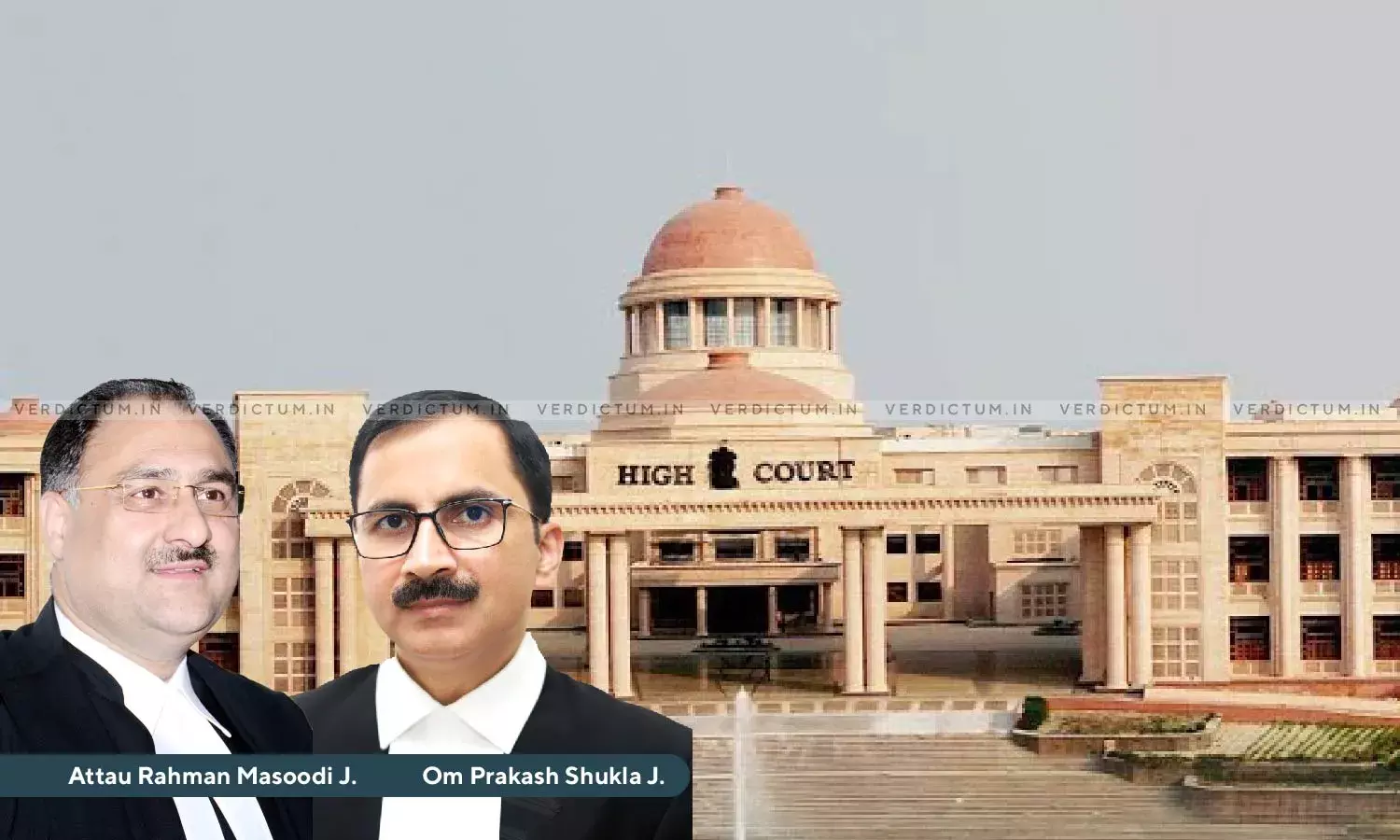Non Consideration Of A Judgment Is Not A Ground For Review: Allahabad High Court

The Allahabad High Court held that non-consideration of a judgment cannot cannot be a ground for review.
The Court, while dismissing a review application, emphasized that allowing such a contention would essentially result in the substituting of the established viewpoint.
“First and foremost, non-consideration of a judgment cannot be a ground for review as that would lead to substituting the view already taken by this Court, in as much as liberty had already been granted by this Court vide the impugned order for availing alternate remedy under Section 34 of the Arbitration & Conciliation Act, 1996 and even it had been directed that all the legal issues would remain open to the review-applicant before the competent forum. Thus, this Court is satisfied that there exists no material error on the face of the impugned order, which would result in miscarriage of justice”, the Bench comprising Justice Attau Rahman Masoodi and Justice Om Prakash Shukla observed.
Advocate Madhusudan Srivastava appeared for the Applicant and Advocate Rajesh Tewari appeared for the Respondent (Union).
The Applicant filed a review application before the High Court, invoking Chapter-V, Rule 12 of the Allahabad High Court Rules in conjunction with Order XLVII Rule 1 of the Civil Procedure Code. This pertained to the matter of M/s Docket Care Systems v Union of India [Writ-C No. 8012/2023]. The basis for the review was the contention that the High Court failed to appropriately consider the precedent set by the Supreme Court in the case of Jharkhand Urja Vikas Nigam Limited v/s State of Rajasthan & Ors. [(2021) 4 SCC 476].
The Court framed the following issue: “Whether the review applicant had made out a case for reviewing the judgment/order dated 10th of October, 2023 or not?”
“The law on the limited scope of review power of any court is no longer res integra”, the Bench noted. The Court reiterated that a review of a previous order is permissible only if the court is convinced that a material error, evident on the face of the order, would lead to a miscarriage of justice or compromise the order's soundness.
The Court observed that for an error to be reviewable, it must be self-evident and not necessitate a process of reasoning for detection. The Court reiterated that the review jurisdiction cannot be used to reassess evidence for an alternative conclusion. The Court referred to the Kerala State Electricity Board v. Hitech Electro Thermics & Hydropower Ltd. [(2005) 6 SCC 651]. The Court emphasized the restricted nature of the review power under Order XLVII Rule 1 of the CPC, cautioning against its misuse to re-agitate settled issues.
In the Jharkhand Urja case (supra), the Court noted that the MSME Council had issued notices and summons, leading to a dispute that was referred to arbitration. The Court noted that the Supreme Court, however, had emphasized the Act's preference for conciliation before arbitration. The Court reiterated that the MSME Council cannot combine conciliation and arbitration processes and, specifically, cannot issue payment orders during the conciliation phase.
Furthermore, the Court underscored the essential distinction between conciliation, which seeks an amicable settlement, and arbitration, which involves adjudication. The Court further interpreted Section 18 of the MSME Act, stating that conciliation must follow the provisions of the Arbitration and Conciliation Act, 1996. Consequently, the Bench observed that in the case, the MSME Council rendered the award after taking into account the arbitration proceedings.
Additionally, the Court observed that the conflict between the MSME Act and the Arbitration Act becomes evident in various provisions. he Court reiterated that the provisions of the Limitation Act, 1963, apply to MSME Act arbitrations. The Court held that arbitration under Section 18(3) of the MSME Act is governed by the Limitation Act, aligning it with arbitrations under the 1996 Act.
In conclusion, the Court emphasized that the conflicts between the MSME Act and the Arbitration Act are multifaceted and touch upon crucial aspects such as the role of the Council, the applicability of specific sections, and the treatment of counter-claims. The Court further emphasized that the review petition in the case appears to be an attempt to transform the review process into an appeal, a move inconsistent with legal provisions.
Despite deeming the review petition as not maintainable, the Court, in adherence to its duty, assessed whether the impugned order caused any miscarriage of justice or provided grounds for review. Finding alternative remedies available, the Court dismissed the review.
Accordingly, the Court dismissed the Application.
Cause Title: M/S Docket Care Systems (Lko. Thru. Partner Shri Pankaj Kumar Agarwal) v Union Of India (Thru. Secy. Ministry Of Micro, Small And Medium Enterprises, New Delhi) And 3 Others (2023:AHC-LKO:82069-DB)

